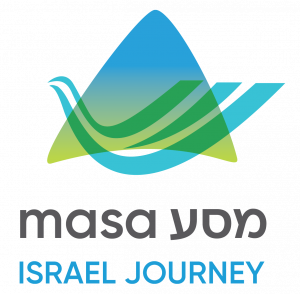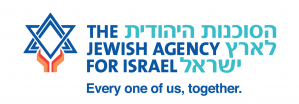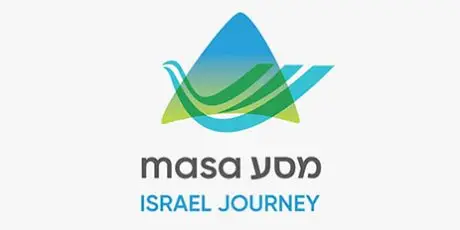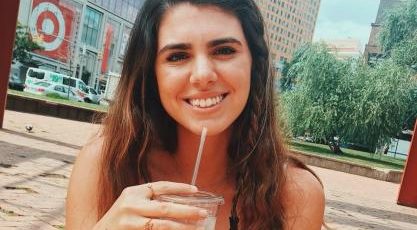Career Israel participant Daniel Vapne gave us an insight on his Masa Israel Journey as an intern in Israel and how it helped him gain professional experience in Israel. After getting his B.A in Exercise Science from Kennesaw State University, Daniel decided to take an internship with Medix, a private physical therapy clinic in Israel.
During his internship in Israel, he was able to apply his knowledge as well as skills from his college experience. His personal struggle and understanding of taking initiative makes him stand out as an exemplary leader of his community. He developed a passion for helping people. Israel’s diverse population requires more than the typical Hebrew skills but the understanding of different cultures and languages as well. His commitment to gaining knowledge helped him bridge that gap.
Daniel gained more than just experience; he developed a plan to give back to people back home and Israel. We asked him some questions about his journey and how it shaped his Jewish identity as well as leadership skills.
How did you end up on a Masa Israel program?
I did Taglit Birthright in December of 2013. A Masa Israel rep came on the bus one day and said, “if you liked Taglit, there’s a longer term program you can do.” They explained that you can choose what you want to do and that there are many options.
I was very touched by the whole Israel experience, so as soon as I got home I did my research. I saw all of my options and thought it would be great to go back and work in Israel. It seemed like I’d get a more hands on experience than I would in the U.S.
I couldn’t treat patients in the U.S. like I did in Israel. In Israel, I did whatever the physical therapists told me to do. In the U.S., I would’ve just been an aid.
In Israel, I was able to use my critical thinking, create treatment plans and facilitate them for my patients. I worked in a multi-lingual environment, speaking English, Hebrew, and Russian.
I think the patients trusted me more. In the U.S., if you don’t have Doctoral degree in Physical Therapy, patients won’t take you seriously.
In Israel, your bosses give you as much opportunity as you want. It’s up to you to prove to them that you’re capable and able to do the job. I’m treated more as an equal than as a tool. It was there where I was able to get the experience that helped me in grad school. There I was exposed to more and actually worked with patients. Now I know how to approach the American population, but also those from other countries. I’ve learned how important the patient relationship is.

You said you treat patients in English, Hebrew and Russian. How are you able to do this?
Before I went on the program, I knew very minimal Hebrew. But after two weeks of ulpan and learning every day at work, on the bus to work and struggling to learn the language, I’m able to actually treat patients in three languages.
My Hebrew was pretty minimal, but I was able to communicate with patients and give them directions on exercises and their treatment. In a month-and-a-half of work I was able to actually do it already.
And where did you learn Russian?
I grew up speaking Russian at home, and I’m really lucky that I’m able to use those skills and talents in Israel. It’s not common in the U.S., at least in my experience, for my Russian to be so useful.
Did you have any experience working in PT before you came to Israel?
I worked at a few different clinics before. During and after college, I helped out in the sports medicine department at my college, working alongside trainers and sports doctors that treated student athletes, on both rehabilitation and injury prevention
I also worked at PT solutions, a physical therapy chain back home. I was an aid there and worked with great young physical therapists who were just a year or two out of grad school. They coached me through the grad school application process.
I mostly just observed what they did and asked as many questions as possible, but I utilized the knowledge I gained from working there in Israel.
I also volunteered at the local Jewish Home, where my grandma lives, and the hospital nearby with in-patient rehabilitation unit. I met a lot of great professionals there that actually motivated me to pursue this path even more.
So, did you defer grad school for a year to come here?
No. Before I went to Israel, I started the application process and I just got my first interview at NYU . I also got my first rejection letter four hours before that, so it was a nice surprise.
What was your involvement in the Jewish community, or Jewish life – if any – growing up?
I had mild involvement in Hillel on my college campus. There weren’t many Jews at my college. I also went to young professional events, and went to events at my synagogue.
I went to a modern orthodox Jewish high school and really found my Jewish identity there. I played basketball there and really felt like part of the community. Even though I was very secular, they really accepted me.
(As I said, I was really secular, so I learned a lot of traditions and values there. My parents are beginning to become more observant. They started keeping a kosher kitchen and my mom isn’t working on Shabbat anymore – she runs her own business teaching piano lessons, so it’s kind of a big step for her. My dad still wants to be secular and we’re fine this way. We have a nice Jewish balance at home and it’s nice to have Shabbat and stay at home together.)- *not sure if to keep this?
You say you grew up secular, how did you end up in a modern orthodox high school?
I got a scholarship for basketball and academics – I was really good at math and the school liked giving scholarships to kids in the community, even if they weren’t religious.
Does your connection to Israel also come from your high school experience?
I had a slight involvement in NCSY, but I’d say my Jewish involvement really increased after Taglit Birthright. I wanted to be more involved in the community. I do have some family in Israel, but really, this is my homeland. I feel more connected to Israel sometimes than the U.S.
What’s it like living here?
It’s great because every day I got to use my Hebrew and even if I couldn’t get my ideas across, everyone knew English and helped me out. I also got to live in the city, I’ve never really lived ‘in the city’ before, so that was great. I’m lived with five other people, around my age, in the center of Tel Aviv!
And how’s Career Israel treating you?
Career Israel was great and my madrichim (counselors/residential advisors) was great. I don’t know if you know Itzik, but he’s the best. He tried to help my girlfriend find a job in the U.S. so we can continue the romance after the program (she’s Canadian).
I’ve also learned a lot about myself and what I can give back to the community, as well as what the community can give me. I’ve made tons of new connections. That’s one of the reasons I loved Birthright. Being in a college that didn’t have much of a Jewish life – it’s what I felt like it was lacking. I was in a fraternity, I was in Hillel, I was involved in academic clubs, but I felt different. I was still a leader of all of these clubs and student groups, but I couldn’t relate to people on a deeper level.
When I told people I was coming to Israel, all of my professors told me to be careful. They didn’t understand that I feel safer in Israel than in the U.S. or in Atlanta. I feel more with my people here.

What do you think of the Leadership Summit so far?
So far it’s great, I have a great group – I mean they’re not too bad (looking back at friends sitting behind us)
It’s really thought provoking and relates to something I’m personally working on. I have the tendency of not asking questions and just taking control. I’m trying to be more of a facilitator and understanding people’s perspectives. For one thing, not trying to control the conversation all the time and trying to see where they’re coming from and accept it. It’s something I was really lacking before as a student leader on campus. It made it hard for people to work with me. I’m trying to learn how to be a more adaptive leader and how to adapt to the group. You know, get a sense of personalities in the group and figure out my own role, instead of asserting myself and claiming a role first.
Something I also learned, especially from the speaker the other night, is to adapt to your audience – the people who you’re with, your coworkers. Not everything is set in stone. Things are done differently, for example here than in the U.S. So I’m trying to find a role – it doesn’t have to be big – to try to make the group dynamic work.
How do you plan to stay involved in the Jewish community when you go back to the U.S.?
I did get a letter from the Atlanta Jewish community – the Jamie A. Tritt Family Foundation Volunteers an Action Leadership program from the Jewish Family and Career Services for the Young Adults Division of this organization to run events.
It’s very hard to tell what my involvement will be because I hope I won’t be in Atlanta for too long when I get home. I’ve always been close to the JCC there. It’s where I worked out and played basketball. It’s where my first job was; at the concession stand and then as a lifeguard. It helped me find my interests, professionally, in aquatic therapy and orthopedic therapy. That’s where it all started.
My long term goal is to open up physical therapy clinics in the U.S. and open one that’s more nonprofit in Israel, somewhere where people need access to that kind of care.
I’ve noticed here that the best care comes from private companies. There is public physical therapy but when I ask patients, they say the care isn’t here. I know it’s hard to have a clinic here; that’s why I want the capital to come from running clinics in the U.S. to open something here. I want to give back to the State of Israel in my own way, but it’s not easy. That’s one of the sad things about Israel: there is a struggle here for people to take risks and in order to take those risks and be successful you have to have the large amount of capital.
That’s what I want to give back to Israel – my knowledge of medicine – to help those going through something traumatic – get back to the way of life that they want.
Is there anything else you want me to know about you or your Masa Israel experience?
Growing up I had a communication disorder – I guess that’s what you call it – I stuttered. Ever since I was in junior high I tried to put myself out there to overcome it so I could become a leader. I’ve always looked up to leaders – activists, politicians, etc. I worked really hard to overcome it. It still comes up when I’m really nervous like in job interviews and stuff.
Because of it, I’m always taking a strong role and working harder than the person next to me, putting in hours of preparation. This is what sort of made me a leader. This attribute that I thought I was lacking – I wanted to be able to be out spoken and be able to be a leader and inspire people to get out there and take action. It’s very important to me because growing up you get ridiculed for that. Now that I’m older I try to be eloquent and stand up for the people who can’t’ speak for themselves. So, that’s something that’s always been something close to my heart and every chance I get I try to work on it.
For example, the first day of the conference I volunteered to speak in front of 250 plus people. I try to get over that fear – it’s there for you to overcome it and it’s just another thing I’ve had to face in my life.
Also, and more related to the community thing, I tried getting extra scholarship from the Atlanta Jewish Federation, because I’d heard that some Federations do that, but they don’t give it. I found it very strange since it’s an affluent community. That’s something I’m trying to make happen because so many young people in Atlanta leave the community, but if they contribute more to this, these people will come back to Atlanta and give back to the community.








